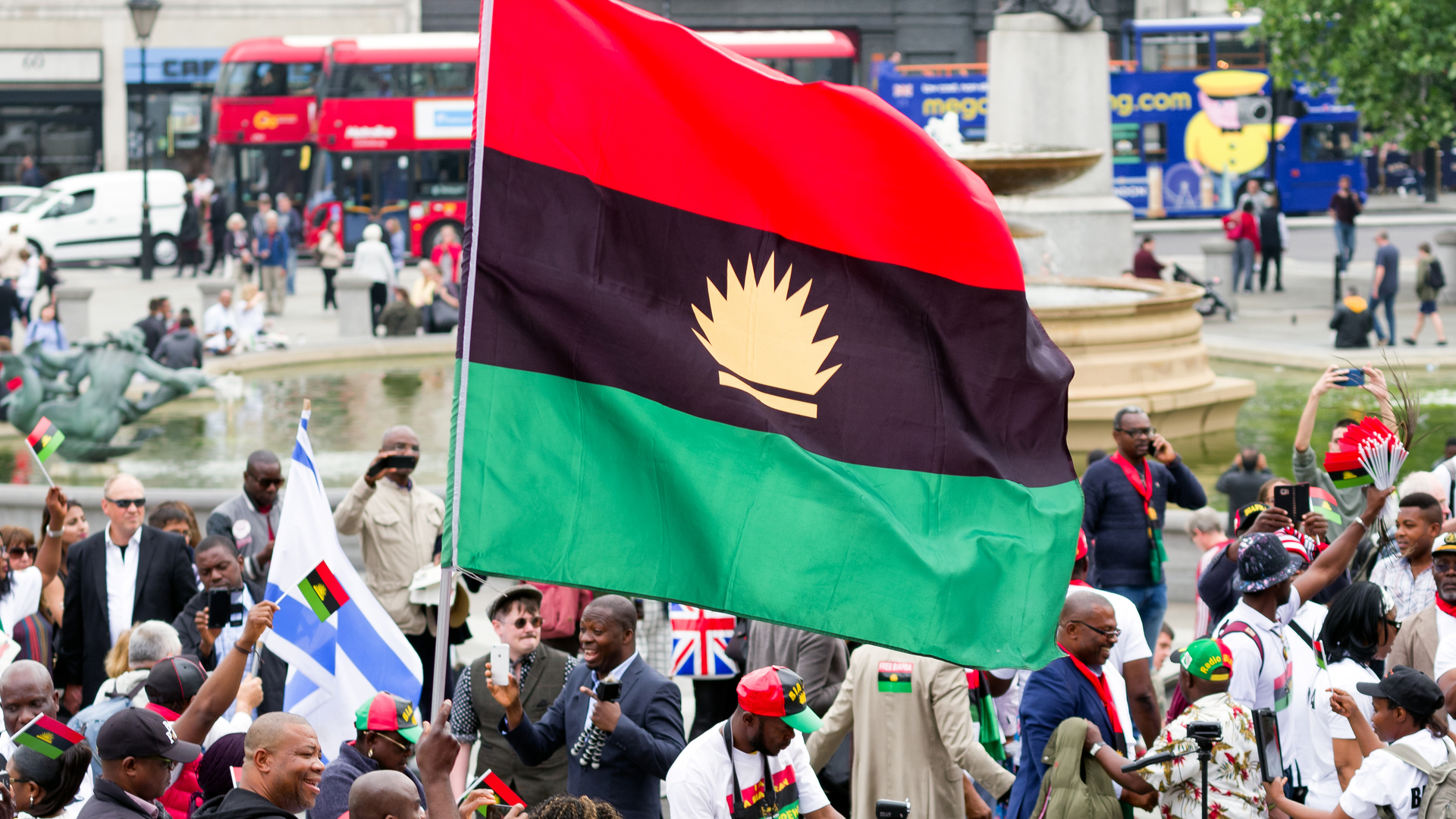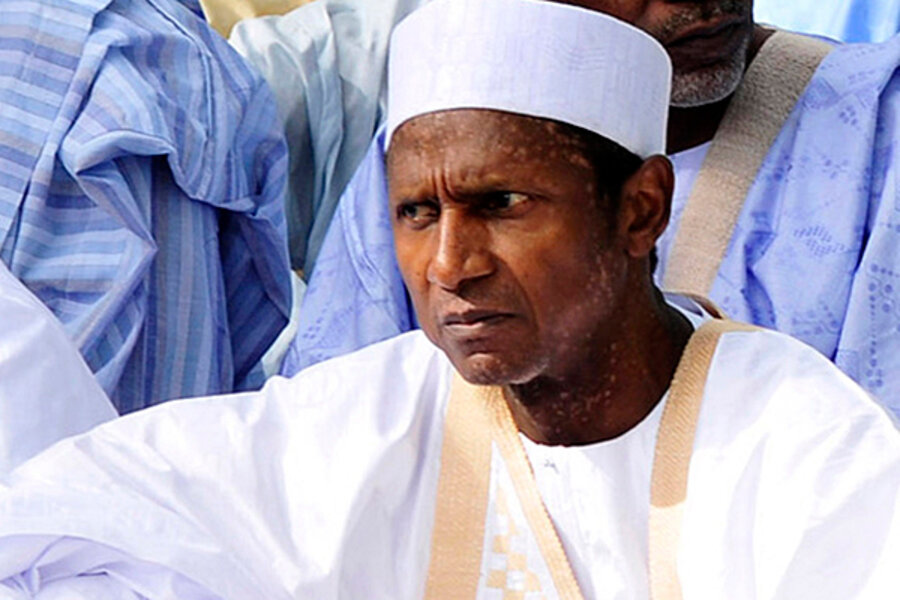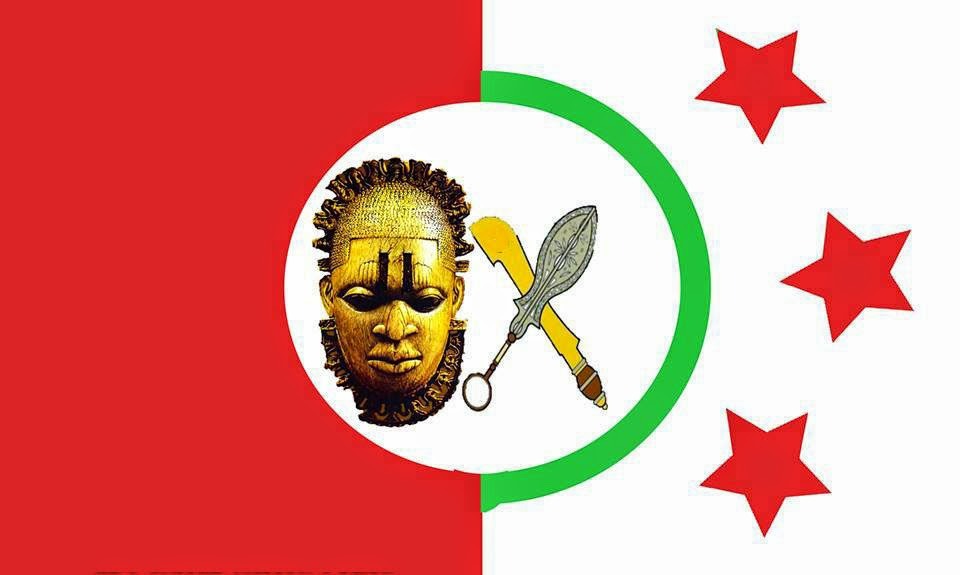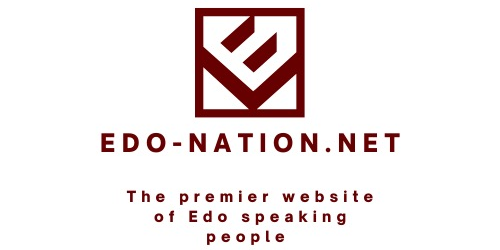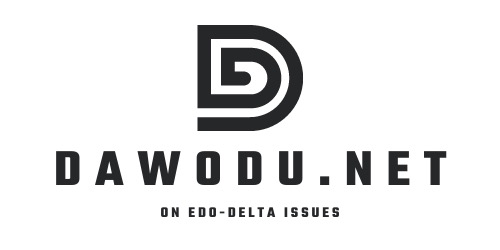SYNOPSIS: “INFORMATION AND COMMUNICATIONS TECHNOLOGY (ICT) – NIGERIA’S ROADMAP TO SUSTAINABLE DEVELOPMENT”
PREAMBLE
Globalisation and its impact on Development in the 21st century have caught many nations unprepared – especially developing nations, including Nigeria. We are thus left in a catch-up mode with respect to a very significant and critical variable in human existence and the development equation.
Today, decision makers find themselves trapped in a complex development spider-web of knowledge, asking key questions such as: What defines community values, progress, development, quality education, justice, wealth, prosperity etc. in today's global information-centric and knowledge-based economy? Has education kept pace with a rapidly changing world? Are there good models for reform that we can follow? Indeed, are we capable of originating a workable model to suite our purposes?
The thrust of our Memorandum, which attempts to examine key challenges and proffer functional and sustainable solutions to our nation-building dynamics, can be broadly summarised as follows: that of ICT intervention and constructive sectoral engagement in
a. “SCIENCE & TECHNOLOGY”
b. “INFRASTRUCTURE”
c. “EDUCATION & HEALTH”
d. “GOVERNANCE & LEGISLATION”
e. “INDUSTRY & COMMERCE”
f. “RESEARCH & DEVELOPMENT”
g. “PUBLIC-PRIVATE PARTNERSHIP’’
h. “GLOBAL COMPETITIVENESS’’
i. “RURAL COMMUNITY DEVELOPMENT’’
There is therefore an urgent need to re-define, update and refocus our national development strategies to critically address all the above issues:
We have observed and are deeply concerned that over the years, ICT and ICT-related issues have not been given the national attention that they deserve, as the catalyst of change for national development and global competitiveness. This observation has once more been justified by the NON-INCLUSION of Information and Communication Technologies Professionals as national delegates to the on-going national conference!
This Memorandum is structured and presented in fewer than four sections. Section One forms the introduction to the subject, incorporating briefly the profile of its sponsors and promoters (ICT-G22); also, it examines the global impact of the Information and Communications Technologies Revolution and its implications for Nigeria. Section Two examines the key factors of global challenges to nation building in the 21st Century with lessons for Nigeria. Under Section Three the Memorandum presents the strategic imperatives for returning Nigeria to the knowledge-based value system, through ICT intervention- as a significant part in resolving the attendant issues of her UNDER-DEVELOPMENT POVERTY ALLEVIATION and leap-frogging her to the path of global competitiveness, wealth creation and prosperity. Section Four concludes the submission with useful recommendations and strategies for the way forward in the form of an ICT-G22 Declaration of Principles
SECTION ONE
INTRODUCTION
1.0 THE THRUST OF OUR CONTRIBUTION
This Memorandum sets out to contribute to the on-going national conference, and is being offered by a group of Nigerian Professionals in the field of Information and Communications Technologies (ICT). The thrust of our contribution is centred on our professional conviction that Nigeria needs and requires a new value system based on science and technology-intensive knowledge, merit, honour, equity, justice and the rule of law to succeed. Above all, this thrust is further strengthened by our recognition and submission of the fact that the above vision can only be timely and meaningfully accomplished, if we re-structure our nation to be science- and technology-based, to be creative and “quality knowledge”- intensive, and to be globally competitive. We must move from a manual to a machine society.
1.1 ABOUT ICT-G22 (Information and Communications Technologies-Group of 22)
Members of ICT-G22 are concerned citizens of the Federal Republic of Nigeria resident all over the world - from Nigeria, United States of America, United Kingdom, Central Europe and South America. Our Headquarters is in Cyberspace and operational twenty-four hours a day, seven days a week (24/7).
The membership of ICT-G22 is made-up of accomplished Professionals in the Science and Technology profession. Many of them have attained great heights in their professional callings. They range from university Professors, Engineers, ICT Specialists to lawyers, Industry Captains and Policy makers with credible track records, experience in the art of governance and recognised contributions to national and international development.
1.2 BACKGROUND
Challenges of "Unchanged National Development Strategies in a Changed World"
Today, decision makers find themselves in a complex national development spider web and they have begun to ask questions. What harm can it make? What defines values, development, progress, happiness, satisfaction, success, wealth, prosperity and sustainability? Are there successful models for reform that we can emulate, adopt and domesticate? The answer is in the affirmative: ICT-G22 has identified models that can be implemented as well as the steps necessary to building sustainable capacities through project management.
As Nigerians, we recognize that our country is acclaimed as the single largest concentration of people of African origin under the universe - endowed with enormous human and natural resources. These credentials place us in an enviable position and at a critical moment of human history. Conscious of the great challenges that confront the attainment of our national dream and destiny, we are concerned about the need to leave a befitting and lasting legacy for this generation and those yet unborn. Re-structuring Nigeria’s development is a task that can be done and must be done.
SECTION TWO
FACING THE CHALLENGES
2.0 GLOBAL CHALLENGES TO NATION BUILDING IN THE 21st CENTURY
The simple truth today is that no nation can effectively succeed in solving her 21st century development challenges unless the national vision, aspiration, mission and strategies are fundamentally anchored in the realm of knowledge creation - and strategically driven by science and technology, with Information and Communications Technologies (ICT) being a key component of the former. Currently, all successful economics of the world are knowledge-based and technology-driven. They have established a new global society, where the core value system is domiciled in the skills to create productively, by transforming knowledge and information into innovative products and services. Can we keep pace with the rapidly changing world without a fundamental shift in our value system and education models? We return a ‘’NO’’ verdict! There must be a Paradigm shift.
There is a Paradigm shift in global development agenda and Nigeria cannot pretend not to be affected by its current and emerging impact. Any nation that wishes to attain and sustain meaningful development MUST therefore enthrone Science and Technology, particularly Information and Communications Technologies, at the highest level and priority of its visioning, planning and nation-building process. It is for this and other significant reasons that nations have placed the highest development priority on building a critical mass of their human capital. Also governments around the world are thus focusing on strategies to increase access to and improve the quality of education.
2.1 NEW SKILLS FOR THE NETWORKED WORLD
Dependence on our natural resources (Oil and Gas) will not guarantee the future existence of the Nigerian nation - only the human capital resource can do it and sustain it for generations yet unborn. According to Robert J. Hawkins of World Links for Development, "A relevant education is more important today than ever, because today's Networked World demands a workforce that understands how to use technology as a tool to increase productivity and creativity. These skills include ‘information reasoning,’ a process in which reliable sources of information are identified, effectively accessed, understood, contextualized, and communicated to colleagues. Furthermore, employers require workers to have the skills necessary to collaborate, work in teams, and share information across global networks, that is, to analyze issues from a multidisciplinary perspective. Because these networks are international, employers seek out individuals who have the capacity to effectively interact with others beyond national boarders."
The simple fact which we all ascribe and must agree to is that, if we compare our world today with the world one hundred years ago, we would encounter amazing advances in science, commerce, health care, transportation, and countless other areas. Now, let us advance our thought along this line on what will happen to us and the changing world, one hundred years from now! One thing is clear: It will be a world ruled by Nano-Sciences and Nano-Technology - where knowledge in the nanoscale (very-tiny-scale) becomes the centre of gravity for human progress, productivity, sustainable growth and creation of wealth.
2.2 IMPACT AND CONSEQUENCES OF ICT REVOLUTION
Compared to the impact of the Industrial Revolution, the emerging world that is likely to crystallize within the next few decades is that of a developing nation, such as Nigeria, that would feel the suffocating impact of science and technology pressure. The “globalization tsunami” will definitely submerge a few nations! Will Nigeria survive this global knowledge tsunami? Current index of our National Development Cycle informs otherwise. However, with a dint of accelerated and timely hard work, we may be lucky to leapfrog and survive the impact of the 21st century knowledge society surge. In any case, no nation will wait for the other in this fearful adventure on the survival of the "knowledge" of the fittest. In today's information and knowledge-driven world, a whole new set of skills are required to survive. It is a brave new world, where wishes are not horses. Indeed, it is a world where now values have changed and where only information- and knowledge-sensitised nations survives!
As a matter of urgency, we emphasise the need to ensure that Nigeria stand up to be counted! Fortunately, it is already easy to see and feel the impact of Digital/Mobile phones on Nigerian lives, before and after its introduction. This is just one of the many ICT offerings that should be dividends of democracy.
SECTION THREE
WHAT MUST NIGERIA DO TO SUCCEED IN THE 21st CENTURY?
First, it is our candid professional opinion that Nigeria cannot attain any meaningful qualitative development within the global context without ensuring:
1 That there is constant and un-interruptible electricity supply at all points and at all times. We used to hear that knowledge is power. But for Nigeria, ‘constant Power’ (electricity) will become the real knowledge tool for engaging 21st century global competitiveness!
2 That its people, especially the mass of rural dwellers, are empowered with information and knowledge that are pertinent to raising their quality of life.
Furthermore, there is an urgent need to re-define, update and refocus our national development strategies to critically address ICT Intervention and constructive engagement in nine critical areas. These are:
j. “SCIENCE & TECHNOLOGY”
k. “INFRASTRUCTURE”
l. “EDUCATION & HEALTH”
m. “GOVERNANCE & LEGISLATION”
n. “INDUSTRY & COMMERCE”
o. “RESEARCH & DEVELOPMENT”
p. “PUBLIC-PRIVATE SECTOR PARTNERSHIP’’
q. “GLOBAL COMPETITIVENESS’’
r. “RURAL COMMUNITY DEVELOPMENT’’
SECTION FOUR
CONCLUSION AND RECOMMENDATIONS
The Nigerian structure of Government, Industry and Academia (knowledge base) has been disconnected for too long a time by applying such an out-dated strategy as ‘EVEN DEVELOPMENT’. We have deactivated the machinery of progressive development, which grossly contributed to the under-development of our nation. Now is the time to re-connect governance with industry and academia, through a science, technology and knowledge-based public-private partnership (PPP) initiative as a strategic vehicle for national development and global competitiveness.
Based on the above submissions, members of ICT-G22 in concluding this Memorandum wish to recommend the following principles as the best way forward in resolving Nigeria’s perpetual crises of nation-building for the attainment of progressive development, global competitiveness, wealth creation and prosperity – through the following declaration:
ICT-G22 DECLARATION OF PRINCIPLES
This declaration was first formulated on 11th August 2003 and has since been updated to fully represent the vision, mission and aspirations of all members of Nigerian Information Technology Think Tank (hereinafter known as NITTT) and presently constituted for the purpose of this Memorandum as ICT-G22 .
WHEREAS Information and Communications Technologies (ICT) and Education have become issues of major concern to all nations and indeed have now been recognised as the core tools for a more purposeful and sustainable development and creation of wealth.
WHEREAS the people of the Federal Republic of Nigeria – the single largest concentration of Black people on Earth – having recognised that knowledge, information and communication are the core attributes of human progress, for engaging the challenges of creating a responsive information society (IS); and
WHEREAS the ICT-G22 , believing that the associated knowledge-enabling environment requires constant monitoring and updating for the Nation to thrive in a world that is constantly changing, has submitted this Memoranda for adoption by the National Conference Committee, through its Secretariat.
WHEREAS we the members of ICT-G22 (in Nigeria and in Diaspora), concerned with cultivating a better future for Nigeria ICT, assembled in Cyberspace HEREBY declare:
1. We are Nigerians that are convinced and share the common vision that the survival of nations of the 21st century depends solely on the incubation and mastery of knowledge-based Information and communication technologies (ICT's) and application systems.
2. We have resolved to:
i) put our individual and collective ability to innovate, create and share ICT-driven knowledge as the driving force and strategic imperative for nation building and competitiveness.
ii) advocate for, and make inputs where, as and when necessary towards the cultivation, modulation, sustenance and implementation processes and operations of relevant National Policies to fully serve the interests and respond to the aspirations of all Nigerian stakeholders world wide.
iii) establish a “people-first” ICT framework and corresponding institutions that meet/exceed global standards and respond to global challenges.
iv) give top priority to harnessing and marshalling the enormous potential and resources of Nigerians at home and in Diaspora to bear on issues of Nigeria’s National Development as a prerequisite to active participation in the global knowledge Olympiad.
v) ensure that our works and services lead to the following;
a. Knowledge-based enabling environment, strategic National Information Infrastructure, technology capacity building and human progress
b. Good Governance, better education for Nigerian Children, enhanced policy instrument and vibrant market environment
c. Improved national security and protection of life and human worthiness at all l levels
d. Standardisation, focused Spectrum Management, engaging and mastering the Internet and knowledge networks
e. Reversing our brain drain misadventure into brain-gain, preserving our cultural identity and
f. Creating ICT Application, content and domesticating technology through a conscious Research, Design and Development (RD&D) strategy, advocacy and activities.
3. We strongly advocate for and recommend an urgent need to re-define, update and refocus our national development strategies to critically address and adopt ICT Intervention and constructive engagement in the nine critical areas identified in Section Three above.
4. Nigeria Technology Identity: We must build the critical mass and enough capacity to domesticate quality technology and build an international brand – that we all can identify with pride, as “Made in Nigeria.” We recommend the establishment of a National IT Commission and a Master Plan for the development of Software-Nigeria.
5. We further recommend that ICT Literacy be recognised as a Fundamental Human Right of all Nigerians and enshrined in the new Constitution.
We thank you in anticipation of your approval and adoption of the content and recommendations of this Memorandum. We assure you of our readiness to appear at the instance of the conference committee’s invitation to expand on this submission, through a presentation and electronic multi-media demonstration.
ICT-G22 Signatories:
Name Country of Residence
Adamu, Jonathan Kish (Barrister) Nigeria
Ajijola, Abdul-Hakeem Nigeria
Akano, Usman Gbadebo, PhD Canada
Aluko, Mobolaji E., PhD United States of America
Aniebonam, Emmanuel C., PhD United States of America
Bada, Abiodun, PhD United States of America
Chife, Aloy, PhD Nigeria
Folayan, Sunday Adekunle Nigeria
Guobadia, Osaretin Oswald United States of America
Ibrahim, Aminatu (Mrs.) Nigeria
Ibrahim, Aminu Mamman, DVM Nigeria
Kadiri, Maxwell Nigeria
Mouka, Reuben Nigeria
Odinma, Augustine, PhD United Kingdom
Ogunlana, Kolawole Nigeria
Omo-Ettu, Titi Nigeria
Onwudiwe, Uche United States of America
Owei, Vesper, PhD United States of America
Udobong, Edna Eguh, LLM United States of America
Umar, Jummai Z. Nigeria
Uwaje, Chris Nigeria
Williams, Seni Nigeria
To contact the group, please send an email to info@nittt.org.ng




